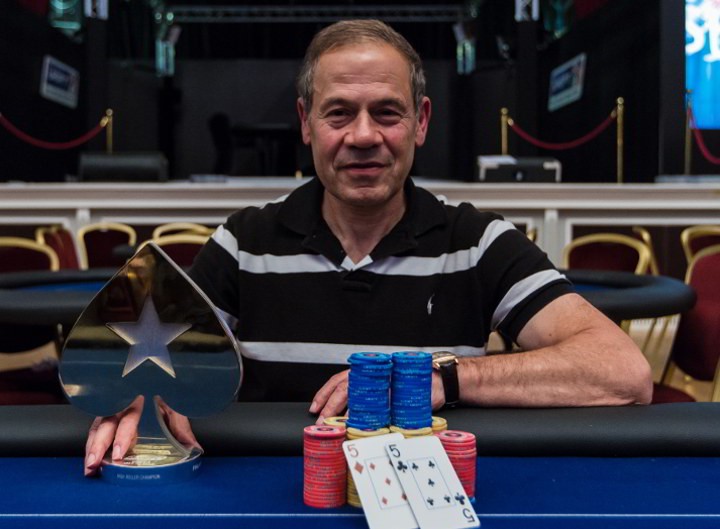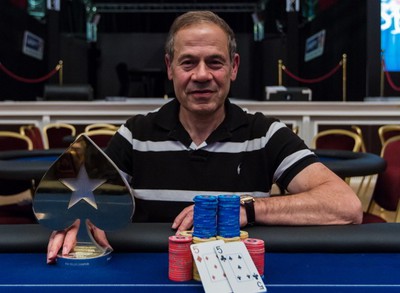

- The reclusive Scheinberg, at large for nine years, has entered a plea of not guilty on charges of operating an illegal gambling business.
- In a hearing last Wednesday, it was revealed by the prosecutor that the government and Scheinberg are already “far along” in negotiating a deal.
- In Switzerland, Scheinberg initially contested the extradition but later decided to voluntarily fly to the United States to face the charges.
Isai Scheinberg, founder of global online poker giant PokerStars, surrendered to federal authorities in New York City a week last Friday, Nathan Vardi for Forbes reported.
The reclusive Scheinberg, at large for nine years, has entered a plea of not guilty on charges of operating an illegal gambling business. He has been released on $1 million bail, after surrendering his passport.
In a hearing last Wednesday, it was revealed by the prosecutor that the government and Scheinberg are already “far along” in negotiating a deal.
“We have an agreement in principle on the basic terms,” the prosecutor stated at the hearing.
 Sign Up Today »
Sign Up Today »
- The #1 site for online poker tournaments!
- The only online poker room offering a chance to win a Platinum Pass for entry into PSPC 2020.
- Largest player base in the world.
However, according to the Forbes report, Scheinberg’s surrender was not entirely at his discretion. Having resided on the Isle of Man since the events of Black Friday, which has no extradition treaty with the United States, he flew to Switzerland a few months ago. It was there that US authorities launched extradition proceedings.
Scheinberg initially contested the extradition, but later decided to voluntarily fly to the United States to face the charges.
Isai Scheinberg is the last of eleven men to be apprehended following the unveiling of the April 2011 indictment which resulted in the three largest online poker sites of the time—PokerStars, Full Tilt Poker and Absolute Poker—being taken offline. Scheinberg was charged with crimes under UIGEA, having allegedly arranged “for the money received from U.S. gamblers to be disguised as payments to hundreds of non-existent online merchants purporting to sell merchandise such as jewelry and golf balls.”
In 2012, PokerStars reached an agreement with the Department of Justice that dropped the civil portion of the case against the company. Under the terms of the deal, PokerStars admitted to no wrongdoing, but Scheinberg was forced to step down from his executive position in the company. The charges against the eleven named individuals remained.
Over the following eight years, the other individuals all faced their charges. Many came to deals that spared them time in jail, with most sentences being quite lenient given the potential decades-long maximum sentences.
Full Tilt’s Ray Bitar turned himself in in 2013 and pleaded not guilty. He ultimately reached an agreement with prosecutors that avoided any additional jail time, in large part due to his ailing health.
P.T., the other member of PokerStars charged under the Black Friday indictment, pleaded guilty and was spared jail time in 2016.
Scott Tom, the founder of fraudulent online poker operation Absolute Poker, spent just a week in jail after pleading guilty to one misdemeanor charge. Brent Beckley, AP’s former Vice President, was sentenced to 14 months in prison.
One payment processor, Chad Elie, was sentenced to five months in federal prison after he pleaded guilty in March 2012 to a single count of conspiracy, but perhaps the harshest sentence was handed down to Ira Rubin who received a three-year sentence because Judge Kaplan believed Rubin posed an “extremely high threat” of recommitting crimes upon his release.
Four others—Nelson Burtnick, John Campos, Bradley Franzen, and Ryan Lang—all pleaded guilty.
After nine years as a fugitive, Isai Scheinberg will be the last of the Black Friday Eleven to face prosecution. Originally he was charged on five counts, including violating UIGEA, operating an illegal gambling business, conspiracy to commit bank fraud and money laundering. The maximum sentences for each of these range from five to twenty years in prison.

